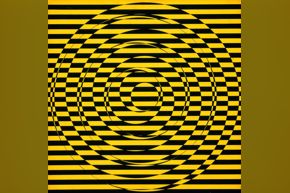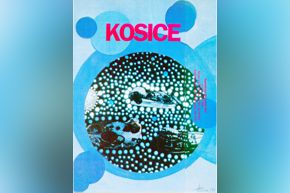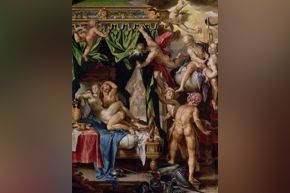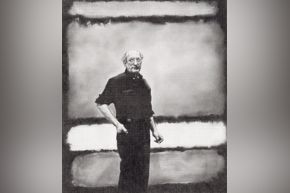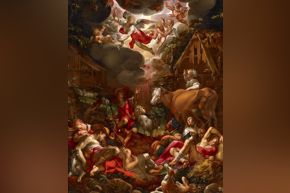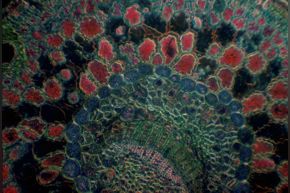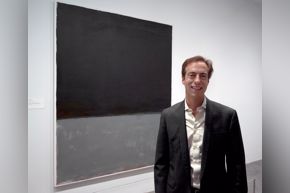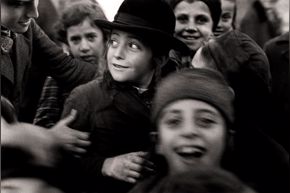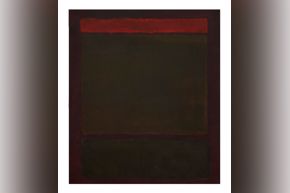Inside the MFAH
“Inside the MFAH” provides perspectives, conversations, and opinions from insiders at the Museum of Fine Arts, Houston.

Arte Concreta at the MFAH February 1, 2016
On December 4, 1956, the Museu de Arte Moderna (Museum of Modern Art) in São Paulo, Brazil, inaugurated the Ia Exposição Nacional de Arte Concreta (First National Exhibition of Concrete Art), an event that brought together poets and visual artists from the country’s two main cultural centers: São Paulo and Rio de Janeiro. The exhibition later traveled to the Ministry of Education and Health in Rio …
Happy Anniversary! ICAA’s Documents Project Website Celebrates Four Years January 11, 2016
The website Documents of 20th-Century Latin American and Latino Art launched on January 20, 2012, after 10 years of quiet, behind-the-scenes work at the Museum’s International Center for the Arts of the Americas (ICAA). It’s hard to believe that four years have passed since we initially made 2,500 documents from Argentina, Mexico, and the American Midwest available online. Since its public …
Buns of Steel: Joachim Wtewael and the Human Body December 31, 2015
I noticed that there’s a neat relationship between the front- and back-cover images of the catalogue for the exhibition Pleasure and Piety: The Art of Joachim Wtewael (1566–1638). On the front is a full-length female nude (Andromeda) and on the back, a full-length male nude (Saint Sebastian). What is particularly intriguing is that each figure has one arm raised above the head, exposing an …
Rothko in Reproduction: Dan Fischer’s Graphite Homage December 15, 2015
Does this image look familiar? A photomural based on a photograph most likely taken by Regina Bogat—which shows Mark Rothko standing in front of his 1960 painting No. 7—greets visitors to the exhibition Mark Rothko: A Retrospective. The artwork you see here, however, is a graphite rendering by American artist Dan Fischer, who creates meticulously detailed drawings based on photographs of well- …
Keeping Watch over Their Flocks: Joachim Wtewael’s Shepherds December 9, 2015
You’ll see shepherds throughout the exhibition Pleasure and Piety: The Art of Joachim Wtewael (1566–1638)because pastoral imagery—that is, depictions of shepherds and serene countrysides—was common in early-17th-century painting and literature. Joachim Wtewael’s shepherds, clean and idealized, carry the accoutrements of the pastoral life: a water-filled gourd, bagpipes, floppy hats, and a staff …
How to Make an Artist’s Manifesto: Recipe for Revolution December 2, 2015
The exhibition “Violence and Precision”: Artists’ Manifestoes, on view at the Hirsch Library, features a selection of artists’ manifestoes from the early 20th century to the present. What is an artist’s manifesto, anyway? Crafted to persuade and convert readers, manifestoes are public declarations describing a person or group’s policies, goals, and opinions. In 1918, avant-garde writer Tristan …
“In Nature, every bit of life is lovely”: Roman Vishniac’s Photomicroscopy November 18, 2015
Although it might come as a surprise to those who know Roman Vishniac as an important documentary photographer, he is every bit as famous a pioneer in an entirely different field: scientific photography. A Lifelong Passion Vishniac’s interest in the natural world began at an early age. When he turned 7, his birthday gifts were a camera and a microscope: tools he would use together for the …
Three Questions for Christopher Rothko November 4, 2015
The exhibition Mark Rothko: A Retrospective brought to Houston—its only U.S. venue—a visit from a top Rothko scholar who also happens to be the artist’s son. I talked with Christopher Rothko about the work of his father, the subject of his new book Mark Rothko: From the Inside Out, published this autumn by Yale University Press. 1. Is there something about this exhibition that makes it different …
Rediscovered: Roman Vishniac’s Social Documentary Practice October 14, 2015
Roman Vishniac was one of the best-known photographers of life in Eastern Europe in the years before the Holocaust changed it irrevocably. Through publications, such as his famous 1983 book A Vanished World, his photographs profoundly influenced contemporary notions of that world and way of life. If at times Vishniac crafted a particular story for an image, he did so in order to use photography to …
What is Abstract Expressionism? September 30, 2015
“Abstract Expressionism” refers to the art movement that flourished in New York in the 1940s and 1950s. Its leading figures included Mark Rothko, Barnett Newman, Clyfford Still, Franz Kline, Willem de Kooning, and Jackson Pollock. Few artists in this loosely affiliated circle of painters, however, considered themselves “Abstract Expressionists,” “Action Painters,” or a “New York School”—terms …

